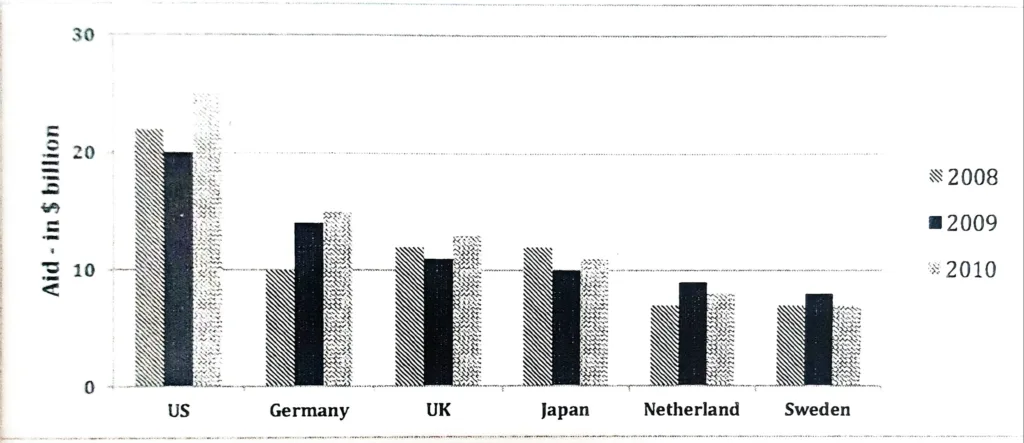
The chart shows the percentage of people accessing news via different media in one country in 2013, 2015, and 2017. Summarise the information by selecting and reporting the main features, and make comparisons where relevant.
The bar graph illustrates how, between 2013 and 2017, people’s methods of getting news in the nation under consideration varied significantly. Overall, the population’s sharp decline in the proportion of people who obtain their news from printed newspapers was the most obvious trend.
Over a five-year period, the proportion of people who obtain their news from printed newspapers fell from 42% in 2013 to just 22%. In comparison, the percentage of people who get their news from the internet increased from 32% to 41% in 2015 and then skyrocketed to 68% by 2017. The percentages for radio news barely changed, remaining at roughly one-third.
There was a notable decrease in TV news from 79% to 67% between 2013 and 2015. However, there was a slight increase to 71% in 2017. It’s clear that in 2013, TV remained the most widely used medium for news consumption, with a 35% share, far higher than newspapers’ 42% share. Even in 2017, TV remained the most popular medium, but internet usage came in second, with the difference closing to just 3% (71% vs. 68%).


